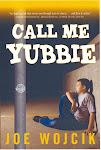Helping children deal with bullying starts way before a child even enters the school for their first day of class. Y.U.B.B.I.E. is an acronym used in schools by Joe the Biker to help students understand and cope with bullying. It can also represent how a child should be nurtured at home. Every component in Y.U.B.B.I.E. should be part of raising a child in a home that ultimately with give a child the necessary tools to effectively deal with bullying.
This is the beginning of a five series blog using Y.U.B.B.I.E. to help parents help their children. This month we will talk about the first letter Y.
Y – You need to stand up and tell an adult. How do we help a child do this? Parents have to develop a channel of communication with their children that allows for an open exchange to take place. This starts when they are very young and how a parent engages a child to communicate. It has to be nurtured in some children who just by temperament resist talking or sharing. A parent has to dedicate time to helping a child communicate. It means spending time, sharing feelings, sharing perspectives, explaining emotions and inquiring about their understandings. A parent has to connect with their child on many levels to achieve this exchange and be willing to place any topic on the table for discussion.
Parents who spend time with their children can detect subtle changes in moods and demeanor. Parents do this by:
- Sitting down for supper as a family to encourage this exchange.
- Spending time with their family engaged in activities that open up casual conversations. These are opportunities to discover without probing.
- Nurturing a child through emotional experiences by discussing their feelings and providing a healthy perspective.
- Creating an atmosphere where a child feels comfortable sharing their most intimate feelings.
- Talking about subjects that a child might face in their day to day activities and experiences.
When children feel comfortable communicating with their parents, even when it is a difficult topic, they usually tend to feel comfortable communicating to other adults – hence they can report an incident of bullying much easier.
Something to think about:
- Children who are severely punished may learn to lie, deceive or conceal in order to protect themselves, avoid punishment or to discuss their feelings openly. Fear is one of the reasons why children do not tell an adult. Parents have to learn positive forms of discipline which create an atmosphere conducive to a free and unlimited exchange of thoughts and emotions with their children.
- Parents who are successful in engaging verbal interactions with their children produce the ability to help their child emotionally through experiences like bullying. Bullying will never stop but how a child reacts to it and survives the experience has a lot to do with their ability to talk things out and that is where a parent's role comes into play.
A final thought.
Parents have to understand even if they have everything in place and they have done everything right there are no guarantees in life. A child's brain is not fully developed until the age of 22 years. They do not think like an adult, they do not solve problems like an adult and they do not perceive the world or time like an adult. That is simple reality and why tragedies happen and teen take greater risks. As a parent you can give your child the tools – they have to choose to use them and hopefully turn to their parents when they feel they can't cope with a situation.
Joe the Biker performances are made available by the Yubbie Movement (Foundation) which is supported by the generous contributions of private and corporate sponsors. Help me help one student today by going to www.yubbiefoundation.org and click on the donate page for details. You can also kept my month newsletter at Cup Of Joe






No comments:
Post a Comment